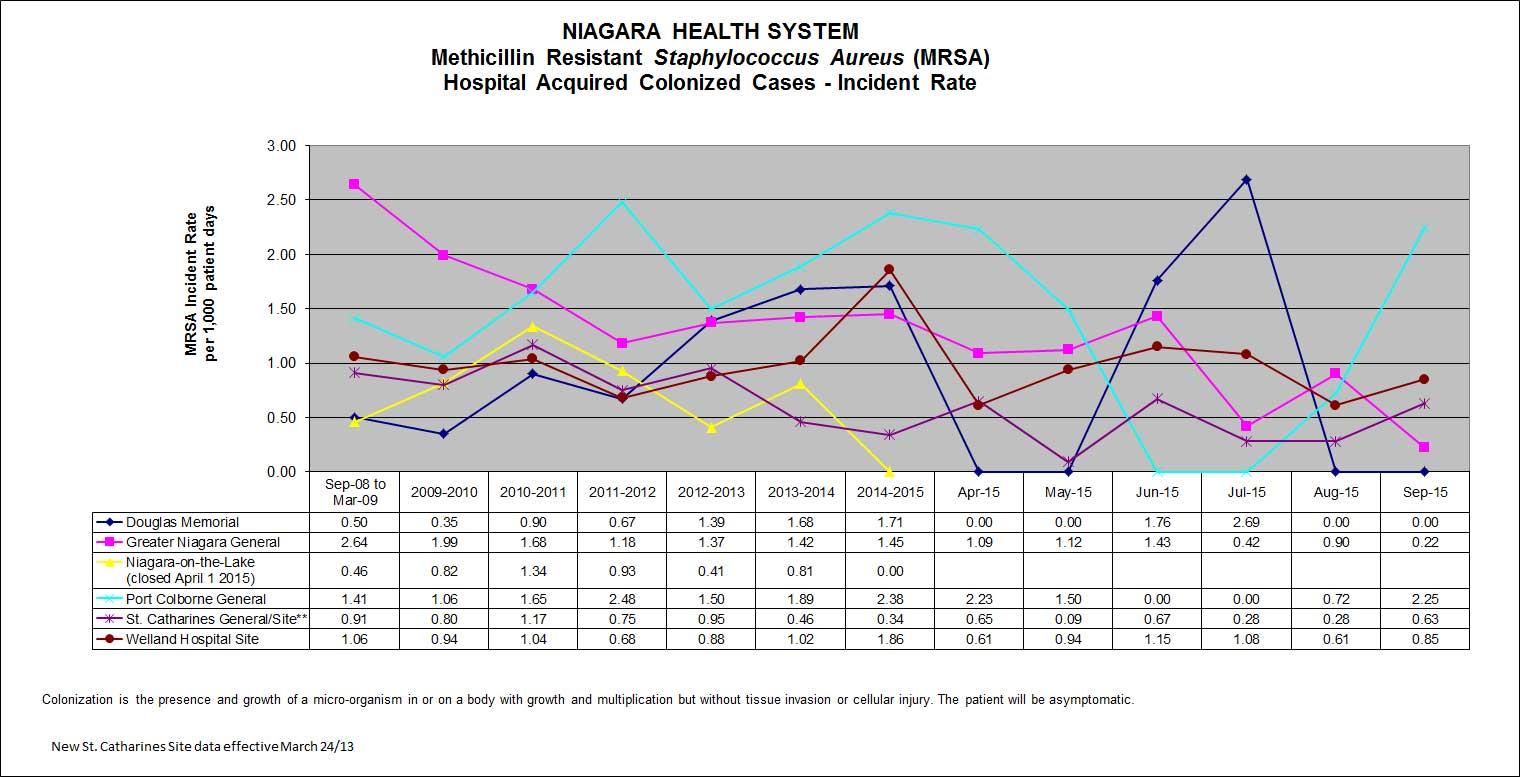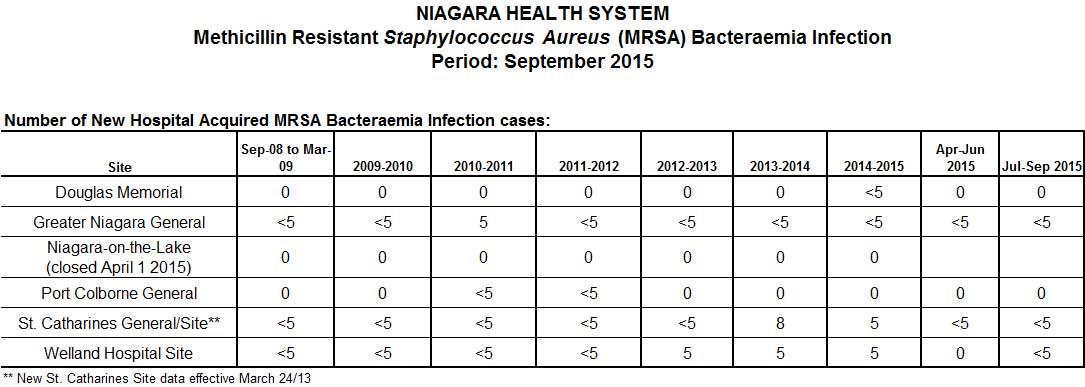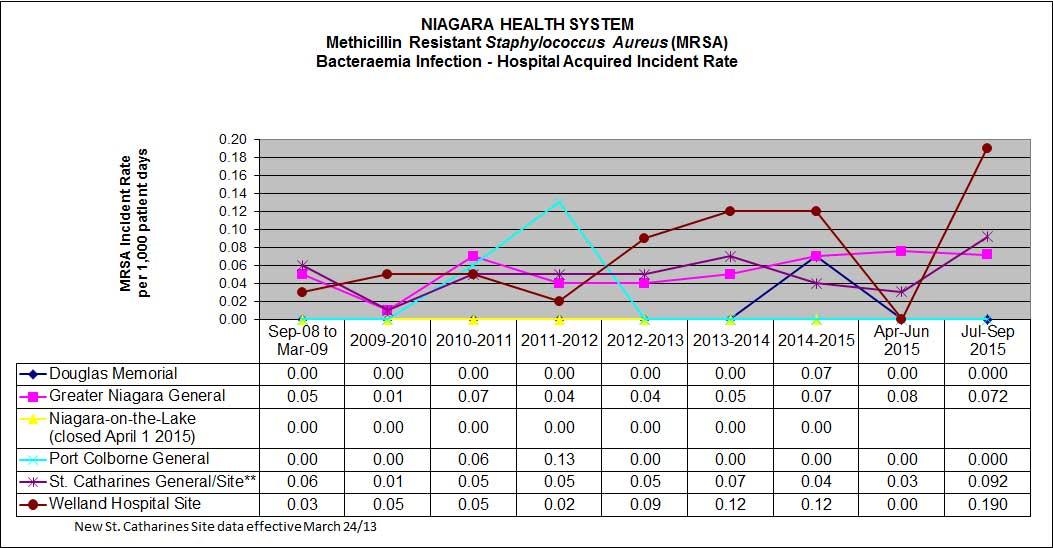Methicillin Resistant Staphylococcus Aureus
Share This Page
Share This Page
Niagara Health takes your care and your safety very seriously, and we are committed to communicating details about our Infection Prevention and Control program.
Click on the links below to learn more about our Quality & Safety Indicators.
See below for charts showing the MRSA infection rates at each of our inpatient hospital facilities. Each month, we will post these details. The Ministry of Health and Long-Term Care has posted information regarding rates at all Ontario hospitals. Please read on for information about MRSA and how you can help prevent the spread of infection.
Methicillin Resistant Staphylococcus Aureus Hospital Acquired Colonized Cases – Incident Rate

Number of New Hospital Acquired MRSA Bacteraemia Infection cases:



Staphylococcus aureus is a germ that lives on the skin and mucous membranes of healthy people. Occasionally S. aureus can cause an infection. When S. aureus develops resistance to certain antibiotics, it is called methicillin-resistant Staphylococcus aureus, or MRSA.
The presence and growth of a micro-organism in or on a body with growth and multiplication but without tissue invasion or cellular injury. The patient will be asymptomatic.
Bacteraemia is the presence of bacteria in the bloodstream and is referred to as a bloodstream infection.
MRSA is spread from one person to another by contact, usually on the hands of caregivers. MRSA can be present on the caregiver’s hands either from touching contaminated material excreted by the infected person or from touching articles contaminated by the skin of a person with MRSA, such as towels, sheets and wound dressings. MRSA can live on hands and objects in the environment.
Precautions include:
Your family and visitors should not assist other patients with their personal care as this may cause the germ to spread. Visitors may be required to wear a long-sleeved gown and gloves while in your room. Before leaving your room, visitors must remove the gloves and gown and dispose of them in the garbage container and the linen hamper located in your room. Then they must clean their hands.
Remind all staff and visitors to practice good hand hygiene before and after they touch you. Ask your nurse or doctor to demonstrate proper hand hygiene techniques (15 seconds of soap and running water OR waterless alcohol hand rub until hands are dry).
You need to clean your hands:
If you have MRSA at the time of discharge from hospital, there is a small chance of spreading the germ to your family. We recommend you practice the following:
For more information, please speak to your Health Care Provider.
